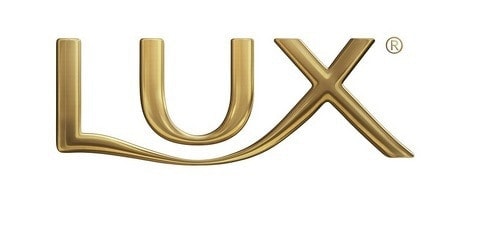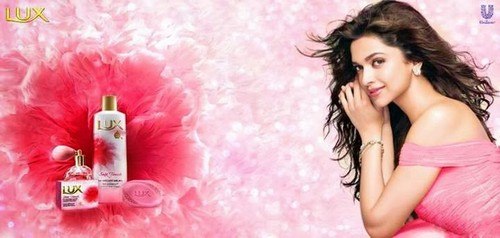The Marketing mix of Lux analyses the 4Ps of Lux, including the Product, Price, Place, and Promotion of Lux. Lux is associated with the FMCG industry and deals in the personal healthcare segment. It is a subsidiary brand of its parent company, Unilever, founded in 1899 by Lever Brothers. In 1900, its brand name was changed to Lux from Sunlight Flakes, and it was launched in the consumer market of the United States in 1925 and the United Kingdom in 1928. Some of its competitors are as follows-
- Nirma
- Vivel
- Johnson & Johnson
- Godrej
- Wipro
- Colgate-Palmolive
About Lux Soap
- Type: Soap goods
- Industry: Personal care
- Founded: 1925
- Founders: Lever Brothers
- Headquarters: London, UK
- Area served: Global
- Current CEO: Alan Jope
- Number of employees: 150,000
- Major products: Beauty soap, shower gel, body wash
Table of Contents
Lux Product Strategy
Lux is a global brand that manufactures and markets soap and related products. Its product range includes shower gels, beauty soaps, hair shampoos, bath additives, and conditioners. Lux soap comes in packages of 40gm, 80gm, and 120gm, colors like white, pink, blue, yellow, and green, and several fragrances. Some of its popular variants are as follows-
- Lux Almond Delight
- Lux Fruit
- Lux Orchid Touch
- Lux Saffron
- Lux Sandalwood
- Lux Rose
- Lux Oil and Honey glow
- Lux Aromatic Extracts
- Lux Chocolate
- Lux International
- Lux Crystal Shine
- Lux Strawberry Cream
- Lux Peach and Cream
- Lux Purple Lotus and Cream
- Lux Soft Touch
- Lux Power Me Up
- Lux Magic Spell
- Lux Wake Me Up
- Lux Golden Glow
Lux, a prominent brand in the personal care industry, offers a range of products that mainly focus on beauty soaps and body washes.
The product mix of Lux in 2023 is as follows (Source)
- Beauty Soaps: Lux’s most popular category. These soaps are known for their fragrant scents and moisturizing properties. They come in fragrances, such as floral, fruity, and exotic scents. Some popular beauty soap variants include Lux Magical Spell, Soft Touch, and Velvet Touch.
- Body Washes: Lux has expanded its product line to include liquid body washes. These products offer the same variety of scents as their bar soaps and are designed to provide a luxurious bathing experience. They are often enriched with moisturizers and skin-nourishing ingredients.
- Shower Gels: Similar to body washes but with a slightly different formulation, Lux shower gels are designed for a more refreshing and invigorating shower experience. They often feature unique fragrance combinations and skin conditioners.
- Limited Edition Collections: Occasionally, Lux introduces limited edition products, often in collaboration with celebrities or renowned perfumers. These collections typically include soaps and body wash with unique scents and packaging.
- Travel-sized Products: Lux also offers smaller, travel-sized versions of their popular soaps and body washes, catering to the needs of consumers who travel frequently.
- Gift Packs: Around festive seasons or special occasions, Lux curates gift packs that combine various products, such as a selection of different soap bars or a combination of soap and body wash, often in attractive packaging suitable for gifting.
Lux’s product mix is characterized by its focus on fragrance and luxury, aiming to provide an indulgent bathing experience. The brand regularly updates its product range with new scents and formulations to keep up with market trends and consumer preferences.
Lux Place Strategy
Lux is an international brand with its headquarters base in Singapore. Its products are available in over one hundred countries and occupy a huge market share in South Africa, Thailand, Brazil, Bangladesh, Pakistan, and India. Its international market includes the United Kingdom, Japan, China, the United States, and Argentina.
Its manufacturing plants are located in seventy-one places across the world. Lux has a widespread and strong distribution network in a global market that includes distributors, warehouses, stockists, and retailers. In India, its extensive distribution network ensures its channel includes more than seven thousand stockists and two thousand suppliers so that products reach consumers through more than one million retail outlets. Its products are easily obtainable via corner shops, convenience shops, supermarkets, hypermarkets, and malls. Wholesalers and large retailers can place bulk orders directly with Lux Company.
Lux place strategy is as follows:
- Wide Retail Distribution: Luxury products are widely available in various retail outlets, including supermarkets, department stores, and convenience stores, ensuring easy accessibility for consumers.
- Global Presence: The brand has a strong international footprint, with its products being sold in more than 100 countries, catering to diverse consumer preferences across different regions.
- Online Availability: Recognizing the shift towards online shopping, Lux has made its products available on e-commerce platforms through official brand stores and third-party retailers.
- Strategic Placement in Stores: Luxury products are often strategically placed in stores at eye-level or prominent sections, making them more noticeable and encouraging impulse purchases.
- Localized Distribution Strategies: Lux adapts its extensive distribution network strategies to local consumer habits and retail structures in different markets, ensuring optimal reach and relevance in each region.
Lux Pricing Strategy
A sound and competitive pricing mechanism and strategy take a company forward. It is necessary to evaluate every aspect, including market conditions, production costs, and prices set up by rival brands, before setting up its product prices. Lux Soap became a mass-market brand, with revenues crossing one billion euros in 2009.
It has adopted a complete marketing mix strategy with a competitive pricing policy as it faces stiff competition in the market and hence has kept product prices reasonable and affordable. It has adopted a promotional pricing plan to create bulk sales and offers incentives like discounts, coupons, and one free product on bulk buying of three soaps. This helps in increasing sales figures and ultimately leads to greater revenues.
Lux’s pricing strategy reflects its positioning as an affordable luxury brand in the personal care market. This strategy balances the perception of quality and indulgence with accessibility, appealing to a broad consumer base. Here’s a breakdown of Lux’s pricing approach:
- Competitive Pricing: Lux sets its prices in a way that remains competitive with other personal care brands in the market. This strategy ensures that it is an attractive option for consumers looking for quality products without a premium price tag.
- Psychological Pricing: Lux often uses psychological pricing tactics, such as slightly reducing the price point below a round number (e.g., pricing a product at $4.99 instead of $5.00). This makes the products appear more affordable and can boost sales.
- Promotional Discounts and Offers: Regular promotions, discounts, and bundle offers are crucial to Lux’s pricing strategy. These promotions not only stimulate sales but also encourage trial among new customers.
- Premium Pricing for Special Editions: For limited edition ranges or products created in collaboration with designers or celebrities, Lux might adopt a premium pricing strategy. These products are priced higher, reflecting their unique value proposition and exclusivity.
- Market-Based Pricing: Lux adjusts its prices to different geographic markets. This flexibility allows the brand to cater to varying economic conditions, purchasing power, and competitive landscapes in different regions.
Overall, Lux’s pricing strategy is designed to uphold its image as a brand offering luxurious experiences at an accessible price point, thus maintaining its wide appeal while ensuring market competitiveness.
Lux Promotion Strategy
Lux is a household name and has become a synonym for soap. The brand believes in aggressive and intensive marketing and has launched several ad campaigns for its international market. During its early years, it used print media and advertised via magazines like Ladies Home Journal to gain brand visibility.
Lux brand advertisers through television, newspapers, magazines, online ads, billboards, and social media platforms, including Facebook, Twitter, and Blogs. It also sponsors events and functions like the Lux Zee Cine Awards and the Lux Dance India Dance. Lux believes in celebrity endorsements and has always used them to promote its products in the consumer market to gain maximum coverage.
Over the years, famous international personalities associated with Lux are Deborah Kerr, Deanna Durbin, Samantha Eggar, Sandra Dee, Natalie Wood, Cheryl Ladd, and Sophia Loren. In India, actors associated with Lux marketing are Deepika Padukone, Katrina Kaif, Aishwarya Rai, Rani Mukherjee, Sridevi, Hema Malini, and Sharmila Tagore. Lux has also included male models like Shahrukh Khan, Paul Newman, and Abhishek Bachchan to act in its ad campaigns.
Lux’s promotion strategy is as follows:
- Celebrity Endorsements and Collaborations: Lux strategically uses celebrity endorsements and collaborations, often with famous actors and personalities, to enhance its brand image and appeal to a broad audience.
- Extensive Advertising Campaigns: The brand invests heavily in advertising across multiple channels, including TV, print media, online platforms, and social media, focusing on the luxurious and sensual experience of using Lux products.
- Engaging Social Media Presence and Digital Marketing: Lux maintains a strong and engaging presence on social media, utilizing platforms like Instagram and Facebook for targeted digital marketing and interactive campaigns to connect with younger consumers.
Some Recent Video ads and Print ads of Lux are:
Liked this post? Check out the complete series on Marketing Mix

